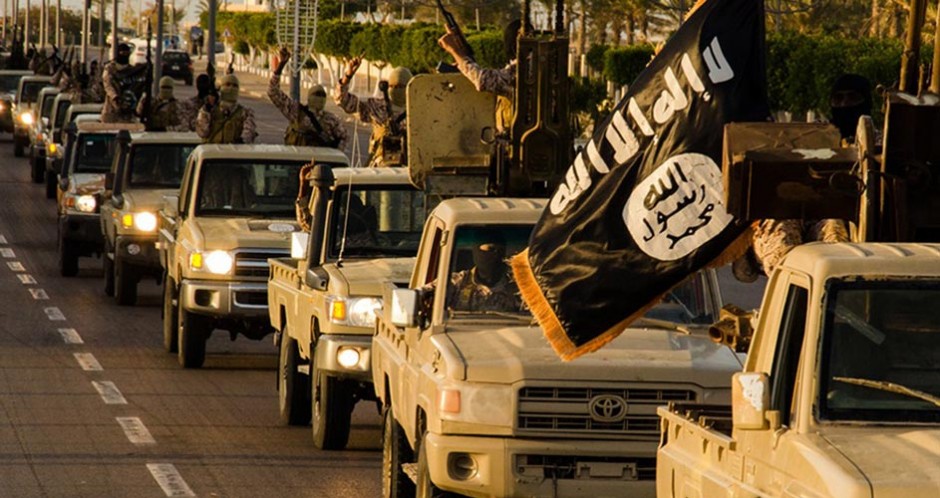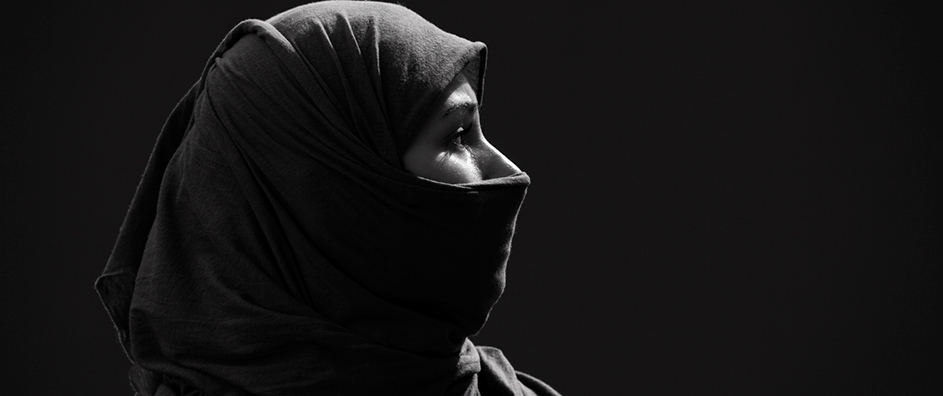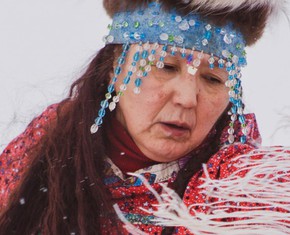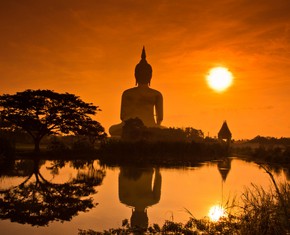The views expressed in our content reflect individual perspectives and do not represent the authoritative views of the Baha'i Faith.
The Arabians were in the utmost state of degradation. They were bloodthirsty and barbarous, so savage and degraded that the Arabian father often buried his own daughter alive. Consider: Could any barbarism be lower than this? The nation consisted of warring, hostile tribal peoples inhabiting the vast Arabian peninsula, and their business consisted in fighting and pillaging each other, making captive women and children, killing each other. Muhammad appeared among such a people. He educated and unified these barbarous tribes, put an end to their shedding of blood. Through His education they reached such a degree of civilization that they subdued and governed continents and nations. What a great civilization was established in Spain by the Muslims! What a marvelous civilization was founded in Morocco by the Moors! What a powerful caliphate or successorship was set up in Baghdad! How much Islam served and furthered the cause of science! Why then should we deny Muhammad? If we deny Him, we awaken enmity and hatred. By our prejudice we become the cause of war and bloodshed, for prejudice was the cause of the tremendous storm which swept through human history for thirteen hundred years and still continues. – Abdu’l-Baha, The Promulgation of Universal Peace, pp. 346-347.
That “tremendous storm” Abdu’l-Baha refers to—the massive warfare, bigotry, fear and antipathy between the Christian and Islamic worlds—has now resulted in hostilities and conflict between Western governments and radical Islamists, including the forces of ISIL and al-Qaeda, among others. Groups like the “Islamic State”—which is neither Islamic nor a state—rely on dubious, convoluted and downright false interpretations of Sharia law to justify their violence and terrorism; while the Qur’an and the original teachings of Muhammad forbid Muslims from engaging in acts of terror that kill or harm innocent civilians. To be fair, Western governments also have a history of colonizing and controlling Islamic cultures, and waging wars that result in the death of many civilians, as well. Even though the vast, overwhelming majority of the world’s one and half billion Muslims are peaceful, law-abiding people, the tiny terrorist minority has called Islam’s principles into question among much of the planet’s non-Muslim population, resulting in the continuation of that mutually destructive storm.

However—Sharia law, at least in its most puritan, fundamentalist form—does include several practices that clash with the consciousness of modernity.
Sharia law, for example, justifies the formal inequality of individuals, granting non-Muslims and all women fewer rights than Muslim men. Sharia law, in some Islamic cultures, regards modern human rights as disruptive to the collective nature of society. Sharia law recognizes no separation between church and state, requiring governance based on religious doctrine rather than principles of liberty, democracy and individual rights. Sharia law, in its severest interpretation, justifies holy war. Sharia apostasy and blasphemy laws forbid conversion to another religion or no religion; and make speaking out against religion punishable by death. Sharia laws permit slavery, polygamy, domestic violence and the burning of books.
These laws, many Islamic scholars believe, must change in order for Islam to survive in the modern world. The Baha’i teachings have an even stronger view. Baha’is believe that Baha’u’llah brought an entirely new religious revelation that supersedes and abrogates Islamic law:
In former religions such ordinances as holy war, destruction of books, the ban on association and companionship with other peoples or on reading certain books had been laid down and affirmed according to the exigencies of the time; however, in this mighty Revelation, in this momentous Announcement, the manifold bestowals and favours of God have overshadowed all men, and from the horizon of the Will of the Ever-Abiding Lord, His infallible decree hath prescribed that which We have set forth… – Baha’u’llah, Tablets of Baha’u’llah, p. 28.
…the distinguishing character of the Baha’i Revelation does not solely consist in the completeness and unquestionable validity of the Dispensation which the teachings of Baha’u’llah and Abdu’l-Baha have established. Its excellence lies also in the fact that those elements which in past Dispensations have, without the least authority from their Founders, been a source of corruption and of incalculable harm to the Faith of God, have been strictly excluded by the clear text of Baha’u’llah’s writings. Those unwarranted practices, in connection with the sacrament of baptism, of communion, of confession of sins, of asceticism, of priestly domination, of elaborate ceremonials, of holy war and of polygamy, have one and all been rigidly suppressed by the Pen of Baha’u’llah; whilst the rigidity and rigor of certain observances, such as fasting, which are necessary to the devotional life of the individual, have been considerably abated. – Shoghi Effendi, The World Order of Baha’u’llah, p. 22.
So while the laws of Muhammad helped weld the fractious, warring tribes of the Arabian Peninsula together and created the world’s most advanced civilization during the Middle Ages; Baha’is believe the Sharia laws that developed over time have now outlived their usefulness and been replaced by a new spiritual code of human behavior.
The Baha’i teachings, therefore, outlaw holy war. They forbid religious hatred, violence and the burning of books. They abolish the concept of ritual impurity, regarding all things and all people as pure, and viewing nothing as untouchable. They establish and uphold freedom of conscience and belief. They forthrightly declare the equality of women and men. They assert the fundamental agreement of science and religion. They forbid slavery. They have no dress code, dietary restrictions or dogma. They promote world peace, the unity of nations and the absolute equality of all races. They protect freedom of religion, and ask us all to befriend the followers of every religion. The Baha’i teachings—born in 19th Century Persia and severely persecuted in many Muslim countries by the religious authorities there—have no clergy, no rites and no rituals.
Baha’is revere and respect Islam, believing that Muhammad brought a great, true Faith to humanity. The Baha’i teachings count Muhammad as a messenger of God. Baha’is believe that Baha’u’llah has now fulfilled the promises and the prophecies of Islam and the other great Faiths, and brought new laws and teachings to humanity.
Next: Who are “the People of God?”
You May Also Like
Comments

















But...... "Baha’is revere and respect Islam, believing that Muhammad brought a great, true Faith to humanity". Do you speak for all Bahai's???
Muhammad chose six year old Aisysha for a wife and consummated the marriage when she was nine and he fifty-four. I do not revere that.
I left Baha'i after thirty-five years .
Here are a few links to web pages on this subject:
Aisha's age at marriage - Wikipedia, the free encyclopedia
"Thus, Aisha - if she got married in 1 AH or 2 AH - was between 18 to 20 years old at the time of her marriage."
Studying Islam | Articles
"Thus, Ayesha, being 17 or 18 years old at the time of Hijra, she started to cohabit with the Prophet between at either 19 to 20 years of age."